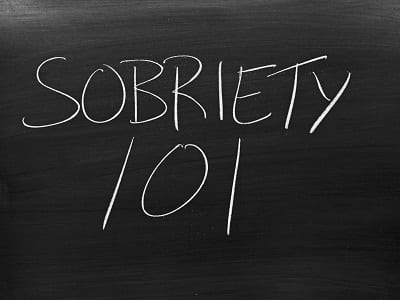Results of the Substance Abuse and Mental Health Services Administration (SAMHSA) 2016 National Survey on Drug Use and Health reveal startling statistics related to drug and alcohol use by teens and young adults.
The statistics found that among youth between the ages of 12 and 20:
- 7.3 million use alcohol
- 4.5 million report recent binge drinking
- 1.1 million report heavy alcohol use
- 2 million 12- to 17-year-olds use illicit drugs
- 8 million 18- to 25-year-olds use illicit drugs
Although SAMHSA statistics find that over 341,000 young people between the ages of 12 and 17 complete addiction treatment programs each year, research shows that 8 out of 10 students who return to their previous school relapse within a year.
Recovery high schools also called Sober Schools, and recovery programs on college campuses are improving relapse rates and helping students attain long-term recovery success.
Recovery High Schools
Recovery high schools provide a state-recognized curriculum along with recovery support for students in recovery from substance use disorder or co-occurring disorders. The goal is for students to complete accredited courses for graduation while also working on an individual recovery plan.
Recovery schools focus on academics and are not treatment centers. Typically, students must complete a rehab program and have at least 30 days of sobriety before being accepted into the school. Students must remain sober to stay enrolled in the program.
Studies show students who attend a recovery high school have a better chance of graduating from high school and a lower risk of relapse than students who return to their previous school after addiction treatment.
For teens in recovery in the Tampa Bay area, the Florida Recovery Schools of Tampa Bay is a local non-profit that operates private recovery-focused schools, including Victory High School in Pasco County. Their program supports students with both substance use challenges and co-occurring disorders like depression and anxiety. Students aged 14 to 19 and their parents should contact the organization directly for more information. Upon graduation, all students receive a qualified diploma from their local school district.
Visit the Association of Recovery Schools (ARS) website for their complete list of recovery high schools.
Recovery Communities on College Campuses
Campus life often revolves around parties, football games, and local bars offering discounts and encouraging drinking games. Students in recovery may find it difficult to manage triggers to addictive behavior without support.
Collegiate recovery communities (CRC) offer collegiate recovery programs (CRP) on college campuses to support and reinforce recovery from substance use. CRPs provide students the opportunity to pursue their educational goals alongside their substance abuse recovery program.
Besides providing sober housing, counseling, and peer support, CRPs organize sober social events like substance-free tailgate parties, trips, and outings.
The number of college recovery campuses increased from 29 in 2013 to 186 in 2018, indicating that students are embracing a sober-friendly college environment.
Refer to the 2019 National Collegiate Recovery Directory for campus locations.
Problems Associated with Drug or Alcohol Use
Thousands of high school and college students die each year from alcohol and drug-related causes, including alcohol poisoning, drug overdose, suicide, homicide, drowning, motor vehicle accidents, and other accidental injuries.
There are many other less deadly but equally serious consequences of drug or alcohol use. These may include failing grades, legal problems, risky sexual behavior, or engaging in physical or sexual assault.
If you or a loved one has a drug or alcohol problem, reach out to an addiction specialist for guidance. Once you are in recovery, a recovery high school or a collegiate recovery community may be a great option for helping you stay sober and achieve your academic goals.
Turning Point of Tampa has been offering Licensed Residential Treatment for Addiction, Eating Disorders and Dual Diagnosis in Tampa since 1987.



